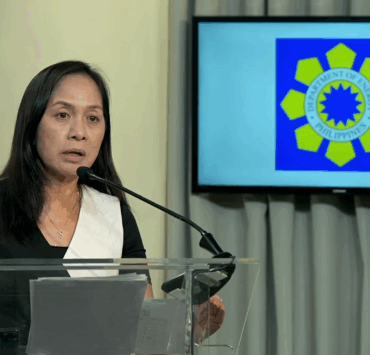Human capital at the front and center of the energy transition

Last August 27, I shared the stage with the Department of Energy and a fellow industry player at Melchor Hall, University of the Philippines Diliman to discuss the development of the power industry workforce in the face of the ever-evolving demands of the energy transition. Organized by the Philippine Daily Inquirer as part of their Campus Talks series, we exchanged insights in front of an audience mostly composed of engineering students, a crowd whom we wish would eventually take up the mantle.
There was a shared understanding that electric power is the silent backbone of modernity and economic opportunity, and that if these are to be sustained and made better, it will require a reliable and sustainable power system. Dr. Maria Antonia N. Tanchuling, Dean of the UP College of Engineering, said it best: “The issue of having adequate, reliable, clean, and affordable energy is essential in ensuring the development of our nation. Without it, how can we industrialize? It’s a basic ingredient.”
Just as much as the right quantity and quality of technology and infrastructure is required, many skilled and competent professionals who will run and operate the power generation, transmission, and distribution facilities are needed as well. The International Labour Organization reported that the Philippines will need 350,000 additional skilled workers by 2030 to support its renewable energy goals. Currently, only around 120,000 are employed in the sector.
For both the incumbent and the future power industry workforce, it is never easy. They are facing a dual challenge of adding new technologies and also keeping traditional systems working well; not so much replacing the old with the new but more of synergizing the traditional with the emerging. The integration of energy sources such as solar, wind, LNG, and eventually nuclear, as well as energy storage, is seen to further increase in the coming years, presenting challenges like increased system intermittency, waste management, and tradeoffs in land use that must all be addressed. These challenges are made more significant since electricity consumption in the Philippines is expected to further expand, doubling in size by 2040, based on expert projections.
There are also major transformations that are redefining sector dynamics — from a centralized to a more distributed power system, from a traditional grid to a smart one, and from captive consumers to contestable customers or prosumers — and the workforce must be ready to work within and even advance these transformations.
It is clear that people who have the technical knowledge on thermodynamics, power generation systems, and safety, among others, and even those with abilities in project management and understanding policies and regulations must be found and fostered. But with increasing digitalization and decentralization in the power ecosystem, they should also be equipped with the know-how and the capabilities in cybersecurity, artificial intelligence, data analytics, and risk assessment and management. As an HR practitioner, it is important to manage the upskilling journey, especially as changes can be uncomfortable to many people who are already used to doing things in a certain way.
Fundamentally, the power industry workforce — whether from the public or private sector — should exhibit the core skills that tie everything together: analytical thinking, flexibility, agility, effective communication, curiosity, and grit, or the resilience to face setbacks and persevere through them. The industry also needs people with empathy who understand that the work has a profound impact on communities and the planet. These are the human skills that enable innovation, collaboration, and adaptation in a constantly changing world.
At the same time, the institutions and organizations should also create a culture wherein its people can thrive. For instance, to encourage innovation — an important driver in a complex, tech-driven world like the power industry — people should be able to question the status quo with clear, honest, and specific feedback. How can an organization have innovation if it doesn’t have humility, transparency, and open communication to actually listen and address constructive criticism?
In a nutshell, the power industry needs skilled and competent professionals; particularly those with a fundamental background in a certain field (like engineering, economics, or law) who exhibit a propensity for personal and professional growth even beyond their initial scope. This is so that they can keep pace and effectively contribute to addressing the energy transition’s dual challenge and major transformations. Organizations and its leadership also play a key role in building and sustaining a culture that will help these people stay motivated and further develop. All of these things are easier said than done. But considering the cost of not having electricity at all, the travails of developing the power industry workforce for the Philippine energy transition is very much worth it.

















